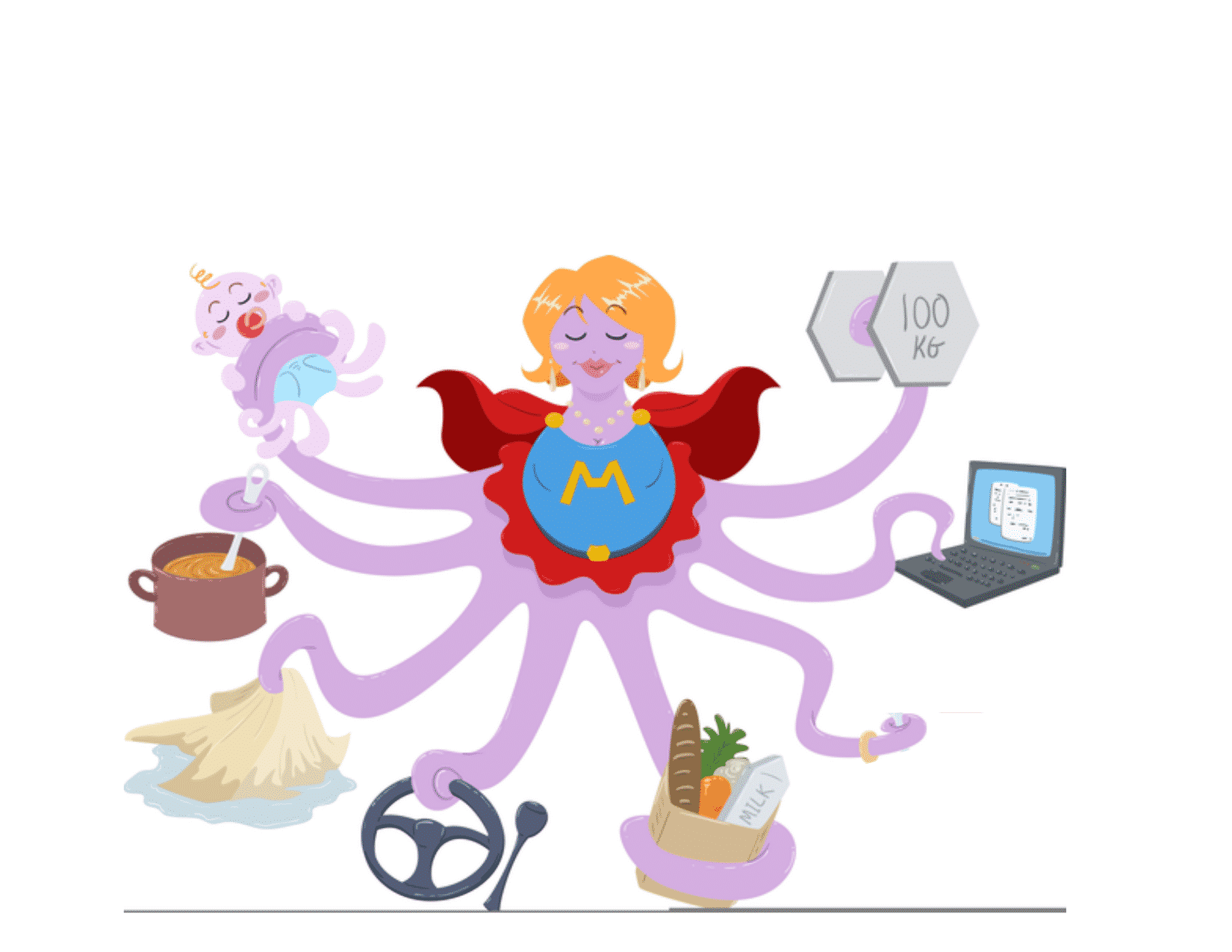As we were driving home this weekend, we drove past a friend’s office. Nathan pointed out the parking lot to Jacob and me, and Jacob mentioned that it was a ways from our friend’s house. Nathan agreed, but then explained it was a longer commute for our friend than his first job was, but it was actually much closer than his second job. Jacob misinterpreted the explanation and was impressed that our friend worked three jobs at the same time! Nathan quickly explained that our friend actually only worked one job at a time, and had transitioned from one to another. Nathan stated that it would be really hard to work three full time jobs all at once.
Jacob pondered that for a moment and said, “Well, unless you’re an octopus!”
That Seems About Right
Jacob’s solution to multi-tasking makes sense! An octopus has eight arms, so in theory it should be able to accomplish 4 times the amount of work that we can with our mere two arms. I guess three full time jobs at one time would be no problem if you have 8 arms! I love the creativity of a 2nd grader! But it got me thinking: How many times do we approach life like we are an octopus? If you are a mom, multitasking is your middle name. In some ways we can relate to an octopus, because we are often required to do multiple things at once, just to survive the Mom Life!
Too Far?
But do we stretch this superpower beyond our true capacity? It is wise to find out if you are taking the Octopus Life too far by doing a “check up from the neck up.” How is your emotional state? Are you able to handle life’s hiccups with grace and stability? How is your mental state? Are you able to complete a thought and remember your next step? How is your energy level? Do you collapse in bed exhausted and dreading the morning alarm? What about your children? Are they overbooked? How often do you have time for them to eat a full meal seated at the table? Are they irritable, anxious or overwhelmed? Is life fun or stressful for them?
Purposeful Does Not Equal Over-Scheduled
Living a life on purpose doesn’t mean that every moment of your day is planned out and accomplishing something. It means you are intentional with what you do. It also means you are intentional with what you don’t do.
Life happens at a rapid pace. Things are constantly being thrown at you, just begging for you to say yes, so we have to be very purposeful with how we respond. In our family we use January, May and August to pause for a moment and reassess everything, including our activities. In January we set plans and goals for the year for the family. In May we set our plans for summer. In August we think about the fall semester. Then repeat!
We begin by listing our current activities and how we are spending our time. Then we ask ourselves if what we are doing is needed or beneficial? Then we look at our family’s priorities and see if we are staying in line with those. We also look to see if any of our family priorities are getting missed because of the other things we are doing. We make a list of things we would like to do over the time period in question. Most importantly, we ask God if what we are planning is in line with how He would like us to spend our time.
The Right Questions Lead to the Right Answers
Here are some of the questions we ask ourselves to make sure our summer is purposeful, meaningful and a whole lot of fun!!
- God Time: Our job as parents is to create an environment where our children constantly cross paths with God. How is your child’s relationship with the Lord? Is it growing? Is it intimate? Summer is an excellent time to help them cultivate their relationship with the Lord because they have extra time they can devote to reading the Bible, worshiping and praying. Which type of connection with the Lord do you want to focus on this year? Help your child come up with ways to accomplish this goal. Youth Group camp is always a must on our list. It is a line in our budget and a priority for our kids. We put this in the schedule and then work the rest of the activities in around that.
- School Skills: As you end the school year, review your child’s school year. Think back, what did they struggle with? Do they need a tutor? Just extra practice? Or can they dig more deeply into a subject that they really love? Think of ways you can give attention to those needs. Summer workbooks and flashcards are great ways to improve skills. Math is always something that we focus on whether it is a struggle or not. Spending 15-45 minutes a day on education (most days) is a great way to keep learning and growing over the summer.
- Hobbies: What are hobbies they want to learn about or improve? Summer is a great time to learn something new or spend extra hours on a favorite hobby. How can you make space for this over the summer? Schedule it so it gets done. My boys want to learn more about fishing, and the girls want to learn more about sign language. Rebekah will also be breaking out the paints for some creative time.
- Sports: Maybe you are like us and we purposefully take the summer off from organized sports. For us, we need one season during the year where practices and games do not dictate our lives. For others, especially if you play softball or baseball, summer is spent with family and friends at the parks. Whether you play organized sports or not, summer is a great time to work on the skills you want to improve in the off season. Our girls will be focusing on setting and serving for volleyball. Hannah will be working on her hurdle step work, and the boys are focusing on left-handed dribbling. As the kids get bored over the summer, remind them of the skills they want to improve in the off season.
- Reading: Readers are leaders. What books do your kids enjoy? How can you instill a love for learning? Plan library trips into your summer schedule. There is so much to learn or explore through books. Help your children find books that peak their interests. Soon we will share some of our favorites. But here are some resources we like to use. Honey for a Child’s Heart and Honey for a Teen’s Heart
- Make Adults: Our job as parents is to guide our children to become fully independent adults. To accomplish this we have to create space for them to learn how to be an adult. By the time they leave our home they should be able to clean a home, do their own laundry, cook for themselves, earn a paycheck, keep a budget and pay bills. To succeed they need to be taught this in our homes and have time to practice the skills. Summer is an excellent time to hone in on these skills. One summer I taught the kids how to do laundry. Another summer it was learning how to clean their own bathroom. What skill set are you going to teach your children this summer?
- Relax: How can you purposefully unplug and unwind this summer? Our bodies, minds and souls need to relax and be refreshed. Resist the urge to overbook the summer based on the first 6 questions! It is okay for the kids to have down time. It is good for them to get bored. Boredom, if left, allows the creative juices to start to flow. You never know what a backyards can transform into, unless space is allowed to create. Playing at the pool, riding bikes, going on hikes and climbing trees are all ways to relax and enjoy the beautiful and rejuvenating outdoors!
- Reducing: What do you want to reduce? What do you want to cut back on? Maybe video games or social media or YouTube videos? What are some things that have become too important in their lives? Summer is a chance to detox! If you work with your kids and have conversations with them, you can help them see that the other 7 questions on this list will fill their time and they won’t need these things as much.
Summer Is Near!
As the school year comes to an end, look at your calendar. Think about your commitments. Pray about it and see if they are in line with how God wants you to spend your summer. Then spend some time with your kids plotting and planning a successful summer. This purposeful planning will help us avoid the stress and exhaustion of the Octopus Life!
Proverbs 19:21
You can make many plans, but the Lord’s purpose will prevail.







